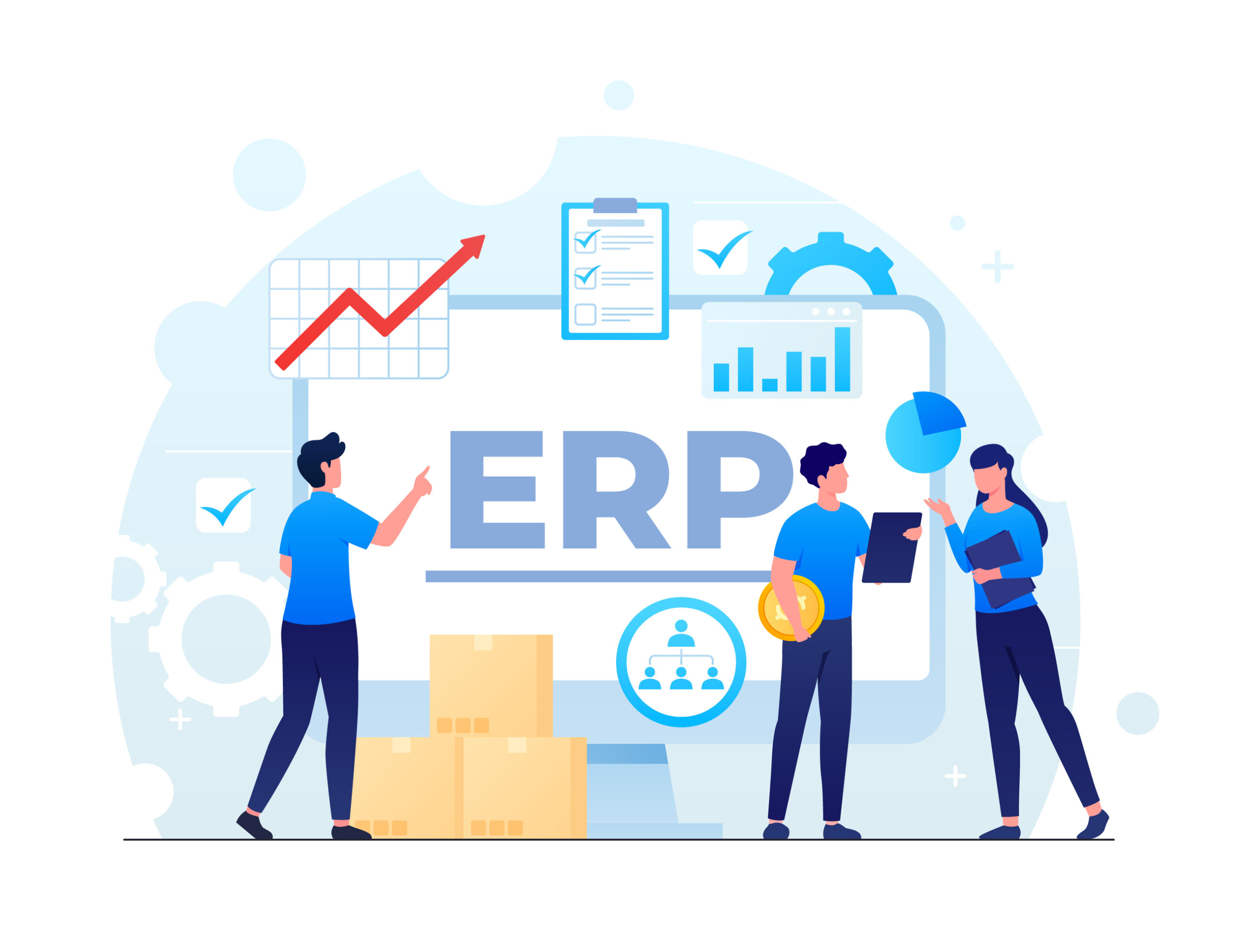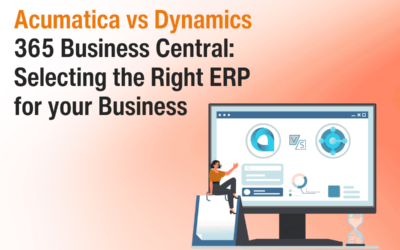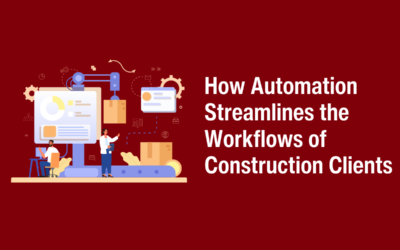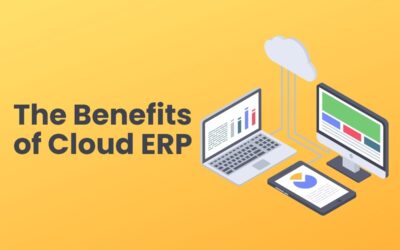As the modern construction industry grows more fast-paced and demanding, companies face a myriad of challenges that can hinder their growth and operational efficiency. From managing multi-faceted projects to achieving regulatory compliance to the competitive pressure of delivering on time and within budget, the hurdles are many. These challenges underscore the necessity for construction firms to adopt innovative solutions that streamline their processes and enhance their ability to execute complex projects effectively.
It’s because of these challenges that many successful construction companies today turn to Enterprise Resource Planning (ERP) systems. Unlike generic business management software, ERP systems designed for the construction industry come equipped with specialized tools and functionalities that address the unique needs of construction projects.
These systems serve as a central hub for all project-related information and integrate disparate aspects of the business, from project management and finance to supply chain management and human resources. This move to centralize operations is key to breaking down information silos and creating a more collaborative, efficient work environment.
This article aims to shed light on how ERP systems can transform the construction industry for the better. By understanding these benefits, construction business owners can make informed decisions about implementing ERP solutions to tackle the challenges they face and drive their businesses forward.
Integrated Business Processes
Construction projects often involve numerous stakeholders and complex workflows, which means that poor coordination between different departments can lead to inefficiencies and miscommunication. The traditional approach of managing operations in silos—where each team uses its own set of tools and processes—frequently hinders collaboration and prevents information from flowing freely companywide. This disjointed approach in turn slows down operations and increases the risk of costly errors and delays.
ERP systems address these challenges head-on by providing a unified platform that connects all aspects of the business. This holistic approach ensures that everyone, from project managers to finance teams and supply chain partners, has access to the same information in real time. Integrated systems promote transparency, enhance collaboration, and facilitate better decision-making. A system like this immediately reflects any updates made to a project’s timeline or budget, allowing for swift adjustments in procurement, staffing, and other critical areas.
Enhanced Project Management Capabilities
Project management is at the heart of every construction firm’s operations. With projects becoming increasingly complex and client expectations higher than ever, construction companies now require more sophisticated project management tools to keep up. Traditional project management methods, often characterized by manual tracking and disjointed communication channels, are no longer sufficient to execute jobs successfully.
Modern ERP systems incorporate advanced project management functionalities directly into the software. These tools enable project managers to plan, execute, and monitor all aspects of a project within one system. From detailed scheduling and budgeting to resource allocation and change management, ERP systems provide a comprehensive suite of features that empower project managers to keep projects on track. For instance, real-time tracking of project progress against milestones and budgets allows managers to immediately identify potential issues. Equipped with this insight, they can then take proactive measures to mitigate risks and avoid cost overruns.
Request a Quote
Real-Time Access to Data
In the realm of construction, where decisions often need to be made on the fly, access to up-to-date information is crucial. Traditional practices reliant on periodic reports or manual data entry can significantly delay the flow of critical information and thereby force leaders to make decisions based on outdated or incomplete data. This gap in the information lifecycle can prevent a firm from adapting to changes or addressing issues promptly.
ERP systems offer up-to-the-minute access to data across the entire organization. By centralizing data storage and ensuring that updates are reflected instantaneously across all modules, ERP systems ensure that decision-makers have access to the most current information at any given moment. Whether it’s the latest financial figures, project timelines, or inventory levels, stakeholders can pull up accurate, timely data that enables them to make informed decisions quickly.
Better Financial Control
Financial management in construction goes beyond mere bookkeeping. It encompasses the strategic planning and monitoring of cash flow, costs, and revenues to ensure project profitability and overall financial health for the company. Given the thin margins on which many construction projects operate, it’s impossible to overstate the importance of maintaining tight control over finances. Conventional financial management systems have historically been siloed and lacked integration with other business functions. This can limit visibility and control over a project’s financial status, leading to budget overruns and reduced profitability.
ERP systems connect financial management with other business functions to provide a holistic view of a project’s financial health. They’re capable of tracking costs, revenues, and profitability in real time, which in turn can empower leaders to make sounder strategic decisions based on the complete financial picture of a project.
Features such as automated billing, contract management, and budget forecasting within ERP systems further streamline financial operations by reducing manual effort and the potential for error. Finally, advanced reporting capabilities enable construction firms to generate detailed financial reports effortlessly. These materials aid in strategic decision-making and help achieve compliance with financial regulations and standards.
Improved Supply Chain Visibility
The construction industry relies heavily on a complex supply chain that encompasses everything from procurement of materials to logistics and inventory management. Mismanagement of any part of this supply chain can lead to project delays, increased costs, and compromised quality. Many construction firms have historically struggled with transparency and coordination. This can make it challenging to track materials, manage suppliers, and predict potential disruptions.
By integrating supply chain management functions into the ERP system, construction firms gain real-time insights into every aspect of their supply chain, from supplier performance and inventory levels to delivery schedules. This visibility enables firms to anticipate and respond to supply chain disruptions more effectively and ensures that materials are available when and where they are needed.
Furthermore, features like automated procurement and inventory management help to optimize stock levels, reduce carrying costs, and improve order accuracy—all functions that contribute to smoother project execution and reduced waste.
The choice to implement an ERP system in the construction sector isn’t just any technological upgrade; it signifies a strategic pivot towards more agile, transparent, and efficient operations. As firms navigate the complexities of the contemporary construction industry, adopting the right ERP solution can be the strategic move that empowers them to thrive instead of simply survive. It’s a forward-looking choice that prepares businesses to meet tomorrow’s challenges with today’s solutions.
Have a question? Book a free consultation today
We understand there are many options to choose from and you want to make sure the tool you adopt is the right one for you.







